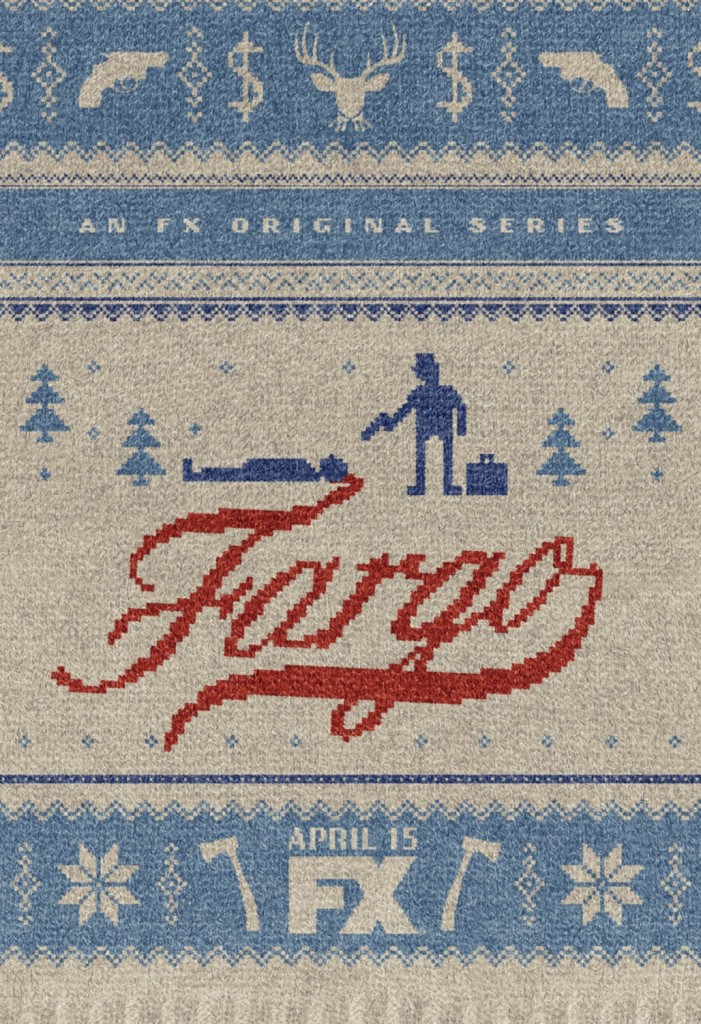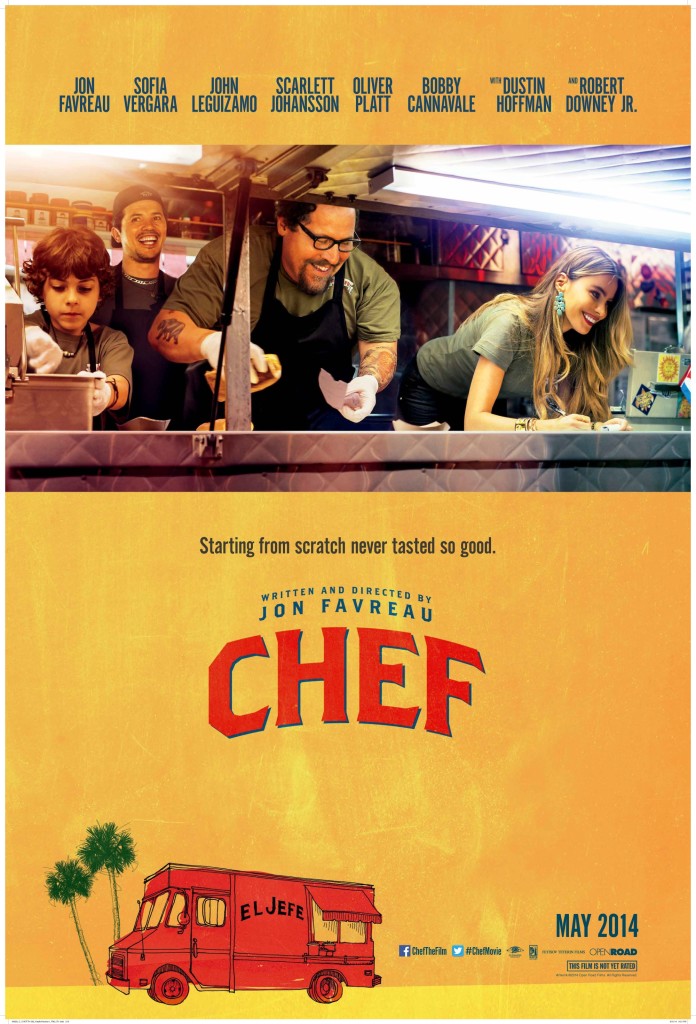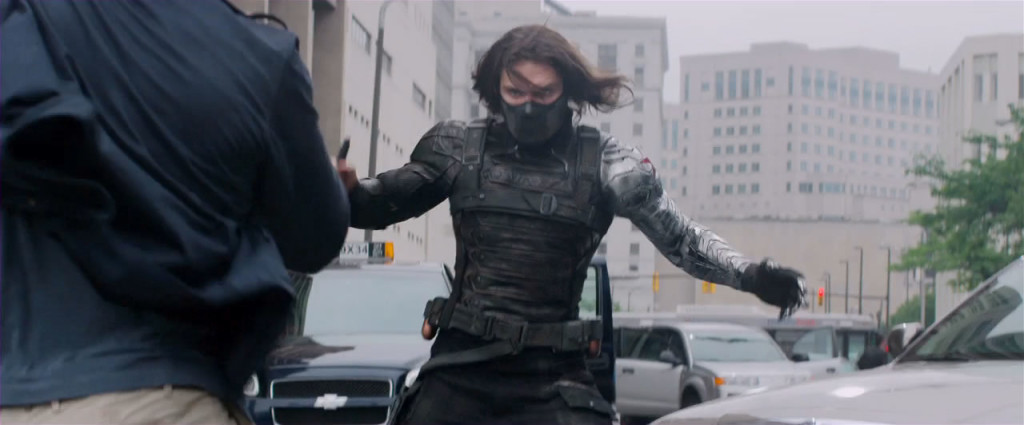There’s this old Catch-22 in Hollywood. You can’t get an agent to read your script unless you’ve sold something. And you can’t sell something unless you have an agent pushing your script. You can probably up that number to Catch-24 or 25, since most production companies and studios won’t read your script unless it’s coming from an agency. There are two reasons for this. First, nobody wants some unrepped script coming in that could end up in a lawsuit. And second (and I think this is the more likely reason), they know the script is going to be terrible and don’t want to waste their time on it.
Yes this is the dirty little not-so-secret about sending your scripts out. 95% of the time, the scripts are terrible, which means if the agents go by the odds, your script will be be terrible, too. As someone who receives and reads lots of scripts myself, I can confirm this. And you guys have seen it, too. You know those 5 scripts you tear apart for Amateur Offerings every week? Those are the good selections. There are tons of submissions that don’t even get past the query stage because of spelling, grammar, lousy concept, lousy logline, or just an inability to form a coherent query (not everybody, mind you. Sometimes we just haven’t gotten to your submission yet).
So the question for today is, how do you get an agent when the odds are so fiercely stacked against you? Well, there are a few ways to go about it, but before we get to those ways, you must first…
BE READY
Nobody likes to hear this one, but your writing has to be ready for the big time if you’re going to get a respectable agent (you can shoot for a not-so-respectable agent, but that’s another story). Most writers press for agents too early. I see this ALLLLLL the time. And the writers say to me, “Why am I not getting an agent?” And I say, very respectfully, “I don’t think you’re ready yet.”
So how do you know when you’re ready? I don’t think you should send agents anything until you’ve written at least three scripts. And the safer bet is probably six. Still, I know people who are on their tenth script who aren’t ready. So this is not a guarantee of anything other than you’ve put in the work, are serious, and know all the basics (the three-act structure, that a script probably shouldn’t be over 110 pages, what a character arc is, etc.).
From there, it gets a little tougher. I’ve found that “readiness” can be gauged fairly accurately through screenplay competitions. Say you enter four screenplay contests. You should at least get to the second round of two of them (that’s typically the top 100-250 submissions). That’s the bare minimum of “readiness.” I would say getting to at least one semi-final in a good competition is necessary (that’s roughly top 20) before querying anybody. I’ve read every type of script there is. Second rounder, quarter-finals, semi-finals, finalists, winners. From dozens of competitions. So I have a pretty good feel for this. Even the finalists scripts usually have problems. So a second-rounder’s going to have a lot of problems. However, I understand that sometimes it comes down to the right reader “getting” a script, and you might not find that reader in four contests. BUT, if you’ve entered four contests and four separate vetting processes didn’t advance you beyond the first round, I wouldn’t query agents yet. I’d read more professional scripts and I’d buy more screenwriting books. Come back when you’ve gotten stronger.
Another way to know if you’re ready is through feedback. Submitting to Scriptshadow and being graded by your peers is a great way to do this. But not everyone gets that opportunity. Feedback from writing groups is helpful, although can be misleading if you’re still in the early stages when everyone wants to be nice and no one wants to hurt anyone’s feelings. Long-term feedback is the best bet. The longer you get feedback from someone, the more honest they’ll be, and the more reactions you have to compare between. It becomes easier to figure out which of your scripts is getting the best response, and therefore which one might be ready to send out.
Okay, now let’s talk about the three ways to get your script to an agent.
COLD QUERYING
Querying is pointless. Targeted Querying is where it’s at. This means finding all the movies of the past ten years or so that are like your script. Then find out the writers of those scripts along with their representation (both agent and manager). You can find this info from places like Google, Spec Scout, The Tracking Board, IMDB Pro, and the WGA. Does this take forever? Yes. But whoever said this was easy? You’re competing for prime agent real estate against hundreds of thousands of other writers. Of course it’s going to be hard.
You’ll then write your query e-mail to these people. And guys, please check your query with a friend before you send it out to a hundred agents. Like I said before, I can knock off 60% of queries right away due to a grammatically incorrect e-mails or terribly written loglines. If you don’t know what to write, try something along the lines of: “Hi, I just wanted to say I’m a huge fan of “Terminal Cyborg.” It was one of my favorite films from last year. I understand that you represent the writer. I was wondering if you might want to read my script, “The Robot Files,” which is in the same vein. It’s about a group of robots who fight for robot rights in 2073 Mississippi.” If you have a noteworthy contest finish, bring it up. “The script recently finished in the semifinals of the Nicholl and has placed in many other contests. If you’re interested, let me know and I can send it over.” Personally, I’ve found that even quarterfinal Nicholl finishes are only “okay.” I don’t know if others feel that way too, but I’d probably only bring up semi-final or higher finishes and only in well-known competitions.
Another little trick you can do is… well… stretch the truth. You know that friend who USED to work at JJ Abrams’ “Bad Robot” as an intern for three months? The one who read your script? Well, technically, if you said that your “script is into Bad Robot and they’re considering it,” you’re not technically lying. The truth about Hollywood is, people tend to only want things when other people want them. So if there’s a way, in your query, to imply that other people are after your script, do it. I admit that I’ve been duped by this a few times myself. And while the scripts weren’t any good, they at least got me to open them.
Hearing back from an agent will depend on a lot of things. How well your query was written, how good your concept is, how big the agent is. Big agents often don’t have time to take on new writers, or even give their scripts a read. But if your concept is amazing or your query stands out in some way (it’s funny or really well written), they might read your first five pages and get hooked. The more likely scenario is that some of the mid and lower level agents will respond. That is, anyone who isn’t WME, UTA, or CAA. If Paradigm, ICM or APA responds, you’re still in good company. And then there will be smaller agencies still. Once you get down to the really small guys, you have to ask yourself if it’s worth it. There’s often a good reason these guys are hanging onto the bottom rung.
Querying is all about the efforts you put in. If you half-ass it, you’re going to get half-ass results. You have to have a great concept to start with. Then you have to do all that research, finding the agents who like the material you write. Then you have to find their e-mails. Then you have to write a great query letter that passes your friend’s inspection test. Doing this takes time. But it’s the only way querying is going to work for you.
THE MANAGER
The Manager Route takes a little longer but it’s the route a lot of writers are going these days. If agents are about selling your material, managers are about managing your material. Whereas an agent might never give you a drop of feedback, most managers will read your scripts and give you notes, helping better you as a writer. Because managers are willing to work with you, they’ll usually take you on as a client when you’re a little greener. In other words, it’s easier to get a manager. Once you have a manager, it’s much easier to get an agent, since managers have a lot of relationships with agents (they’re often working as a team for their clients) and the agents trust their taste. You query managers the same way you query agents. And you should get a little better response.
NETWORKING
Writers hate this term because it’s so nebulous. There’s no A+B=C in networking. Rather you meet someone who may eventually meet someone else who a year down the line remembers your script which they give to someone else who likes it who gives it to their boss who happens to be an agent. Since it’s a lot harder to measure how all that’s going to work, writers would rather focus on the writing part. But of these three options, this is the one that will lead to the most success. People who know you are more willing to pass your stuff on to others, or to read it themselves. Nobody wants to read something from someone they don’t know unless they’ve heard it’s amazing. The great thing is, it’s so damn easy to network in this day and age. Pick one of the many screenwriting boards on the internet, from this site to Simply Scripts to Amazon Studios to Trigger Street and be nice to people in the comments. Make friends. Trade scripts. Join a writing group. The bigger your network is, the more people you will have access to. You guys will get better together, until one of you breaks in. That person will then share his new contacts with you, and before you know it, you’ll have ins with agents who want to read your stuff. This is the slowest of the three options I’ve given, but it also results in the most success. You gotta network, guys.
IN SUMMARY
Like anything else in life, getting an agent depends on how much time you want to put into it, both on the writing side and on the looking side. You have to do a lot of research. You have to know who sells the kind of stuff you write. You have to come up with the perfect query letter. And all of this is dependent on you a) writing a concept that gets an agent excited, and b) executing that concept with a really good screenplay. Those last two things are the things that take the most time, but they’re really the only two things the agents pay attention to, so you gotta nail them first. The thing is, all the people who don’t want to do that? Who try to take short cuts? They’re the ones who get frustrated and give up. They’re the reason you’re going to make it and they aren’t. Because you’re willing to work harder and do more than they are. Getting an agent boils down to good old fashioned hard work. Either you’re willing to put in that work or you’re not.
Genre: Drama
Premise: A small-town insurance salesman finds himself embroiled in a series of violent mishaps after a chance meeting with a mysterious man.
About: One of the best films of all time is being turned into a TV show after a long winter hiatus. That’s right, Fargo, which won Joel and Ethan Coen a screenplay Oscar, has been reimagined as an hour-long drama which will premiere on FX next week. It should be noted, however, that while the brothers are executive producers on the show, it’s unclear how involved they’ll be. The pilot script (and many of the other episodes) will be written by Noah Hawley, who’s probably best known for writing on the show, Bones. However, he also created the short-lived 2009 series, The Unusuals, and has written four novels. The show stars everyone’s favorite hobbit, Martin Freeman, and Billy Bob Thorton.
Writer: Noah Hawley
Details: 66 pages (April 3, 2013 Draft)
On the surface, this looks like both a good idea and a bad idea. A bad idea, because how do you turn a very specific movie like Fargo into a TV series? To fans of the iconic film, it looks like a cheap ploy to get us to pay attention. It’s a good idea because the TV world is desperately looking to fill the Breaking Bad void, and the Fargo universe is about as close, tone-wise, as you’re going to get to the Meth TV Empire without it looking like a direct rip-off.
Plus, you’ve got Billy Bob Thorton in it. And while Thorton’s been missing in action for awhile now, there was a time (when this movie came out in fact) where he was hot shit, winning Oscars and marrying Angelina Jolie ‘n stuff. Hey, anybody who can bag the Angster’s gotta have something going on, right? So what do Billy Bob and the rest of the Fargo production team have in store for us? Can they pull off a miracle and match the cagey wicked hilariousness of the film? Or was this just a big, fat Fargoian mistake? I shall Far-go that answer for the time being.
40 year-old Lester Nygaard is a big fat wimp. He’s got the body of a pimple-faced teenager. He’s got an insurance job that he sucks at. He’s married to a wife who doesn’t respect him. And he lives in a cold, small, miserable town. Whatever the American dream is, Lester is living the opposite of it.
That’s put on display when the town bully, Sam Hess (who has been beating Lester up since high school), starts badgering him during a trip into town. Sam dresses Lester down with a series of insults, and to add more insults to injury, he does it right in front of his own kids. Lester gets so scared during the harassment, that at one point he turns around to run away and runs smack dab into a store window.
It’s at the hospital where he meets the unstable and unpredictable psychopath Lorne Malvo, one of those crazy ass people you NEVER look in the eyes. Lorne asks Lester what happened, and Lester eventually gives him the replay. Lorne is baffled that Lester would allow a man to humiliate him like that, and off-handedly says that if he were ever around that man, he would kill him for Lester. Lester’s a little freaked out but he doesn’t say not to do it. And that’s all Lorne needs.
A few pages later, Sam Hess ends up dead. But the crazy thing about Fargo the TV show is that things don’t end there (major spoilers ahead). When Lester goes home, his wife tears into how worthless he is, and Lester just loses it. To the tune of bludgeoning his wife with a hammer. Ouch! But that isn’t even the end of it. I don’t want to spoil too much but we’ll just say, there’s more blood to come, courtesy of Lorne. And when all that blood settles, it looks like Lester and Lorne are going to have to work together to make sure they don’t get nabbed as the murderers.
Initial impressions?
This is a good, but not great, pilot. My biggest concern after finishing it was, did they blow their load too early? I mean, the killing of Sam Hess was enough to start the ball rolling. They could’ve easily had Lester kill his wife in a subsequent episode. But they killed her here, too. And then someone else. The body count of Fargo started to look like Rambo.
I actually just read an interview with Vince Gilligan, the creator of Breaking Bad, and he said one of the biggest things he learned while doing Breaking Bad was to hold back. He originally wanted to pack all this shit into the first season but he realized if he had done that, he wouldn’t have had a show for very long. He said it was okay to draw things out. And that’s the opposite of what they’re doing in Fargo. I mean, a nuclear bomb just dropped in this pilot.
Another interesting thought that came out of this was, can you root for a character that does horrible things? Walter White (in Breaking Bad) becomes a bad person and we still root for him. But that’s because we got to know the guy as a good person for three seasons. Here, Lester bludgeons his wife with a hammer. It was so shocking I actually jolted backwards, and I don’t experience that often when I’m reading. So in that sense it was good. But now you’re asking for us to root for a guy who bludgeons his wife IN THE FIRST EPISODE.
Again it goes back to, did you really need to do that? Lester was already indirectly responsible for Sam’s murder, so you gave us something he needed to cover up (which provided more plots for future episodes). And we still would’ve liked him. I’m just surprised they went with the wife-killing angle. I guess they wanted that “talk-about moment” to get people discussing the show?
I’m also wondering where the show’s longevity is going to come from, seeing, as of now, that the only goal our main character will have is covering up this mess. In Breaking Bad, Walter White spends a lot of time doing that as well. The difference is, Walter White is active. He’s not just running away from things. He’s building a meth empire. He’s making money to help his family. The “dodging the cops” stuff was always secondary. I don’t know if you can have a show where a character is solely reacting to the past.
The standout character from Fargo is definitely Lorne. He’s that Gaear Grimsrud (the awesome Peter Stormare) from the film who would rather stare you into terrified oblivion than answer whatever stupid question you’re throwing at him. And when he does say something, it’s weird or unsettling.
I noticed that the Coen brothers have gone to well with this character, as we see another version of Gaear in No Country For Old Men (Anton Chigurh). These villains are so chilling in their interactions with people that maybe more writers should be stealing them for their own scripts. Start with characters who bore into your good guys’ souls and ramble on about unsettling shit then add your own flourishes. They’ve done it again here with Lorne and it works.
One of the things that made the Fargo film so memorable was the dialogue, and while the teleplay doesn’t quite reach those levels, it holds its ground. We get exchanges like Lester giving his insurance pitch: “What happens if you have an accident at your job?” “I work at the library.” And that glorious silly Midwestern banter: “Geez. Ya think this was, like, an organized crime thing? A hit or the like?” “Don’t know what I think yet. Except that I was warm in bed a half hour ago.” I was mostly entertained by whatever anybody was saying.
Truth be told, I was really into the whole script until the mountains of bloodshed started raining down from the sky. Fargo the movie had this laid back feel to it that doesn’t gel with so much happening in such a short amount of time. But the characters are interesting enough where I’ll definitely watch a few episodes. I’m curious to see how the show is going to evolve.
[ ] what the hell did I just read?
[ ] wasn’t for me
[x] worth the read
[ ] impressive
[ ] genius
What I learned: It’s tempting to throw everything you can think of into your pilot. We’re all scared that readers (and viewers) won’t stay interested long enough to get to the end. But it’s okay to be patient. Scenes with subtle tension between characters can trump huge bloody shootouts if they’re written well. So don’t blow your load in your pilot. Learn to take your time.
Genre: Dramedy
Premise: A talented chef loses his job after a bad online review, which inspires him to open a food truck.
About: When your acting career is in shambles, what do you do? Why, you write a role for yourself! Jon Favreau did it with Swingers, and even though he’s currently one of the biggest directors in town, acting opportunities have gotten so thin, he’s gone back to his roots, this time with “Chef,” which Favreau wrote, directed and starred in. The film also stars his Iron Man buddy Robert Downey Jr., Scarlett Johannsen, Sofia Vergera and Dustin Hoffman. I originally reviewed this script in my newsletter, but decided to post it since the trailer came out yesterday.
Writer: Jon Favreau
Details: 96 pages (1/31/13 draft)
There’s been lots of confusion in Hollywood over the “Chef” projects. On the one hand you have the undisputed heavyweight chef script champion in Steven Knight’s “Untitled Chef Project,” which began with David Fincher and Keanu Reeves attached. Currently, Bradley Cooper has come on, but that project is still without a director. Then you have this script, which has been causing all this confusion as people have been like, “Wait, is Jon Favreau now directing the Untitled Chef project?? I don’t understand.” I hear that Cannes was quite nutty as investors were approached by both projects and didn’t know which was which (or if they were indeed the same project). They finally sorted it out. Favreau’s Chef was pre-sold. But we’re still waiting for Untitled Chef Project to get produced. :(
Favreau’s career has always been on my radar because, DUH, he wrote Swingers, one of the best films of the 90s. He used that to launch his acting career, which led to his directing career, but he really hasn’t written much since. There was Made, but that was kind of a disappointment. I guess it wasn’t terrible, but there are movies that know want they want to be and there are those that don’t. Swingers knew exactly what it wanted to be. “Made” never figured it out. Luckily, Chef is a lot closer to Swingers than it is “Made.”
The curiously named Carl Casper is a few years north of 40 and a few pounds north of the Surgeon General warning. But as someone everybody believes is an “up-and-coming” chef, he’s got more important things to focus on, like his menu for tonight’s big food critic, a culinary blogger with 3 million Twitter followers (Twitter plays such a big part in “Chef” that the subtitle “Twitter Gone Wild” could’ve easily been placed next to it).
The night doesn’t go well, unfortunately, but it’s only partly Carl’s fault. The control freak owner of his restaurant demands that Carl not serve anything new to the blogger and stick with what’s made them successful. Predictably, then, the blogger writes that the menu (and food) were generic. After the review goes viral, Carl gets pissed and gets his young son (who plays a prominent role in the script) to teach him what “viral” means. This leads to Carl’s first Twitter account, which leads to him calling out the blogger, a result of him not really understanding how Twitter works.
The result is an online war that eventually leads to Carl getting fired from his job (or quitting, depending on how you look at it). With Carl landing on TMZ soon after and no restaurant in town willing to hire him, there are few prospects for the man who was once a happy place for foodies everywhere.
That’s when Carl’s ex-wife gets involved. A 2nd generation Cuban who’s very opinionated, she thinks Carl doesn’t do well working for others and should open up one of those trendy food trucks. She’s got a lead (another ex-husband of hers owns some trucks actually) and suggests the whole family head down to Miami, get the truck, and see what happens. Carl reluctantly gives it a shot, and I don’t think I’m spoiling anything (but turn away just in case) when I say the family gets back together, the truck turns out to be a great idea, and everyone lives happily ever after.
The biggest surprise to me about Chef is how it was structured. And I guess I shouldn’t be surprised. Swingers had an awkward structure as well (they go to Vegas in the first act only to…come back to LA for the rest of the movie?). But Swingers almost celebrated its plot-less-ness. “Chef” actually sounds like a movie. When you read the logline, you fully expect the script to be about a chef who falls from grace then tries to make it in the food truck business. The fall would happen in Act 1, and the food truck stuff would start in Act 2.
That’s not how this works. We spend the ENTIRE first and second acts on Carl’s fall. And then taking a page out of It’s A Wonderful Life, Chef makes its final act the act that explores the hook (in this case, starting a food truck). Does this unorthodox approach work? Usually, it doesn’t have a prayer. Not getting to your “hook” until late is often the result of a writer who drags scenes on for way too long and uses groups of scenes to repeat information we already knew the first time they said it.
But I have to give it to Favreau. He has such a breezy fun way of writing (almost the entire script is dialogue) that you somehow don’t notice the fun part of the story hasn’t started yet. As long as you can keep something happening (problems, conflicts, things that need to be resolved), you don’t technically need to follow the 3-Act Structure in a screenplay. Just continue to make bad shit happen to your hero and see how he gets out of it (or doesn’t). Here, Carl is dealing with enough issues that we stay entertained.
It starts with him getting ready for this evil food critic. Right away, the stakes are high. We have the heartbreak of the owner coming in and telling Carl he can’t cook the food he wants to. Instead he must cook his (the owner’s) boring food. Problem number uno! We then have the fallout from the review, the Twitter war, the second critic showdown, and family problems, which take center stage as the script goes on. The conversations between Carl and his son are particularly heartbreaking, as he makes it clear every chance he gets that he wants mom and dad go get back together.
If there’s a fault in this family dynamic, it’s that Carl and Inez’s (the ex-wife) relationship is very robotic. Or maybe not robotic, but businesslike. They’re really good at having conversations and being cordial and giving each other advice. But I never got the feeling that they still pined for each other. So even though we want them to get back together for the son’s sake, I’m not sure we care that much if they get back together for THEIR sake.
Another thing I liked about Chef was how Favreau is obviously exploring aspects of his own life. The chef position is his directing position. This blogger obviously represents his critics. When people are talking about how Carl used to take chances and now he does safe and predictable food, it’s Favreau making stuff like Iron Man and Cowboys and Aliens. And clearly, moving his career to a food truck represents this here script, Favreau going back to his roots and making a small movie that he’s passionate about.
Does it succeed? Yes, I think it does. But maybe not in the way Favreau intended. The script is good. But the story itself is a little soft. I mean, at its heart it’s a family film. And I don’t know how indie or “edgy” you can get with a family film. But you’re not going to find an easier read this year. This is good solid spec writing.
[ ] what the hell did I just read?
[ ] wasn’t for me
[xx] worth the read
[ ] impressive
[ ] genius
What I learned: We all know to explore ourselves through our characters. But if you really want those characters to pop, explore the parts of yourself that you hate the most, that you’re the most embarrassed about, the things that are truly holding you back in life. It must not have been easy for Favreau to admit to himself, through his character, that he’s grown safe and generic. But that’s exactly what he needed to do to make this character authentic, to make us care for him.
Genre: Action/Superhero
Premise: (from IMDB) Steve Rogers (aka Captain America) struggles to embrace his role in the modern world and battles a new threat from a nemesis shrouded in mystery, the one known only as the “Winter Soldier.”
About: Captain America smashed April records, bringing in 96 million dollars this weekend. It was written by mainstream writing titans Christopher Markus and Stephen McFeely, who have written a Thor movie, the Chronicles of Narnia movies, and three (yes, the next one too) Captain America films. If you need to find these guys, look north of Sunset. One of the main choices the team was faced with, since most of Captain America’s life existed in the 1940s, was whether to include a lot of flashbacks. In an early draft, they did just that, before the flashback structure became “unwieldy.” Eventually, they came to the conclusion most writers do when dealing with flashbacks: “You [include flashbacks] when you don’t have enough interesting stuff [happening] in the present.” I agree wholeheartedly!
Writers: Christopher Markus & Stephen McFeely (story by Ed Brubaker) created by Joe Simon and Jack Kirby
Details: 136 minutes
Captain America is a strange beast and one of the more surprising successes of the Marvel Universe. At his core, the Captain is a cheesy on-the-nose supster, the kind of hero made for another era. “Captain” “America.” How ridiculous does that sound when you say it out loud?
The unusually stiff Chris Evans embodies that on-the-nose idealism perfectly. Captain America is a big fat square, the kind of guy who’s going to remind you you didn’t put your turn signal on before changing lanes. To that end, you’d think people would be annoyed by him. But for some reason, they’re not. And I went to “The Winter Soldier” to find out why.
“The Winter Soldier” focuses on the aforementioned Steve Rogers (Captain America), a pint-sized nobody who enlisted during World War 2, only to be genetically modified into a giant hulking super-soldier. With a shield! Due to some tricky timeline logistics that required Captain America to be in The Avengers movie, a silly storyline was thought up where he was frozen for 70 years and unthawed in the present.
Steve now works for the U.S. Government as well as the secret super-hero agency, S.H.I.E.L.D., and is finding himself routinely disillusioned with his role. Whereas it used to be clear who the good guys and bad guys were, now it seems like half the guys on his teams have ulterior motives, including the sexy Black Widow (played by Scarlett Johanssen), who’s always disappearing to snatch up a USB drive or two that Steve had no idea about.
Eventually, Steve’s boss, Nick Fury (Samuel Jackson) is attacked by a mysterious baddie, known to the few who have seen him as the “Winter Soldier.” Steve eventually realizes that S.H.I.E.L.D. is actually corrupt from the inside, and that those ulterior motives everyone had were a precursor to a much bigger plan to use S.H.I.E.L.D. to take over the U.S. government, and eventually the world!
The most obvious question one comes up with after they watch Captain America is: What the heck is “super-hero” about this guy??? He has a SHIELD. That’s it. A shield! That he uses to block stuff and occasionally throw at people. If that’s all it takes to become a super hero, give me half an hour and a trip to Target and I can be a super-hero, too.
That question can be extended to our bad guy as well, the Winter Soldier. The man has one really strong metal arm. That’s his “super power.” Here’s a question. Why didn’t they add a second super arm? Wouldn’t that have made him twice as formidable? I mean, what’s the logic in stopping at one?
And let’s talk about Black Widow. What is her super power? Being able to squeeze into a very tight latex outfit? Or Falcon? He has mechanical wings that allow him to fly around and distract people? These are super powers??? What ever happened to real super powers? Like Superman???
That’s what annoys me about the superhero universe. Things can be so arbitrary and we’re just asked to go with it because… well, because! The truth is many of these characters were designed in an era and in a medium that wasn’t subjected to the same kind of scrutiny we subject our movie characters to today.
And it leads to an interesting dilemma for the writers, one that some of you will have to deal with one day when you’re writing a superhero movie. Do you stick with the origins of the character to make the original fans happy? Or do you improve upon them to make the character more logical and realistic?
I guess, in the end, you’re either going to go with this flimsy-ruled world or you’re not. If you go with it, Captain America’s a pretty good movie. One of the main reasons for this is they built the story from the inside out. What I mean is that Markus and McFeely first asked who Captain America was, and then what the best situation would be to challenge that person (instead of coming up with a plot first and trying to wedge Captain America into it).
They realized that Captain America was very black and white. He grew up in a time where it was clear who the good guys and the bad guys were. You got your orders and you followed them without question. That was Captain America’s “comfort zone.”
Your job as a writer is to take your character out of their comfort zone. So this movie is about how grey the world has become. How, when a mission goes down these days, you’re not sure if you’re on the right side or not, if the guy next to you is on your team or someone else’s. That stuff starts to eat at Captain America. And it’s what gives this movie an extra layer or two.
It’s a great thing to remember when you’re writing one of these big “summer-type” films. You can make your script deeper simply by challenging your main character with some kind of inner conflict. Add a theme as well (in this case, the theme deals with “trust”) and you have a more sophisticated blockbuster than 80% of the writers out there.
But let’s be honest, when you’re talking about a popcorn flick, the average moviegoer is judging you by your action scenes. Are they unique? Are they fun? Do they get you off your seat? For the most part, the action in Captain America was above average. But there were two scenes in particular that stood out. The Nick Fury car scene and the Captain America gets accosted by 20 men in the elevator scene.
The reason these scenes were cool was because a) we cared about the characters in danger. b) the stakes were high. c) the scenarios were impossible to get out of, and d) it was easy to understand what was going on. See, that last one is the biggie. You can get carried away with an action script, believing your set pieces have to have a million things going on at once. But actually, some of the simplest scenarios are the ones that work best. Nick Fury trapped in this car surrounded by 40 men with AK-47s unloading a non-stop barrage of bullets at him – we’re engaged because we’re wondering how the hell he’s going to get out of this, but also because it’s so easy to understand what’s going on.
Contrast that with the finale of Captain America. I didn’t know what the hell was going on in the climax. There were 18 different things happening at once and I’d forgotten what the ultimate goal was other than to “stop the bad guys.” It was a classic case of “throw everything and the kitchen sink” at the viewer, with them not realizing that we can’t see anything through a kitchen sink. The contrast between those simple and complex action scenes working (or not working) really opened my eyes.
All in all, I’d place The Winter Soldier as the third best Marvel film made so far, behind Iron Man and The Avengers. I still think Steve Rogers is kind of boring when you compare him to other super heroes, but the writers did a really good job creating that inner conflict inside of him, getting as much out of the character as humanly possible. The film did leave me with some questions (why didn’t Iron Man, Bruce Banner, or Thor stop by to help if the world was in danger?) but I guess with these comic book films, a certain amount of logic must be thrown out the window to enjoy them.
[ ] what the hell did I just watch?
[ ] wasn’t for me
[x] worth the price of admission
[ ] impressive
[ ] genius
What I learned: The power of the contained action scene. Like I said above, the instinct is to go big and crazy. But the bigger and crazier you go, the harder it is for the audience to keep up with what’s happening. Sometimes the best scene is a simple one. Put your character in an elevator with two dozen bad guys and see how they get out of it.
This is your chance to discuss the week’s amateur scripts, offered originally in the Scriptshadow newsletter. The primary goal for this discussion is to find out which script(s) is the best candidate for a future Amateur Friday review. The secondary goal is to keep things positive in the comments with constructive criticism.
Below are the scripts up for review, along with the download links. Want to receive the scripts early? Head over to the Contact page, e-mail us, and “Opt In” to the newsletter.
Happy reading!
TITLE: Harmony
GENRE: Thriller
LOGLINE: When Harmony, an American woman’s adopted Mexican child, is mysteriously kidnapped by the cartel, she must go to Mexico to confront a dangerous drug lord, and find out the truth behind his disappearance.
WHY YOU SHOULD READ: Harmony is the most perfected script I have ever written. Before that, I thought that the stories I had imagined wasn’t worth the extra effort, the notes orders, and the 3-o’clock-in-the-goddamm-morning rewrites.
I believe this story does worth all the pain, due to its emotional, easy to relate drama, simple GSU, marketability. Had Scriptshadow’s Rich and Lauren analyze and nitpick my script and recently got a “consider” from another scriptwriting service.
Thanks to them, I think the story is where it needs to be. Anyway I’m now broke and out of ideas, so it would be helpful to have free feedback from you and the script shadow world.
ps: I’m a writer from Paris, maybe it would be an opportunity to do your first french writer’s review? And hopefully I can prove that we don’t all suck miserably :)
TITLE: Marlowe
GENRE: Noir/Historical
LOGLINE: P.I. Sam Marlowe shows novice writer Raymond Chandler the realities of detective work, juggling gangsters, corrupt politicians and movie star Jean Harlow to find out who’s burning farms on the Arroyo Seco Canyon.
WHY YOU SHOULD READ: This is the real life story from the files of Detective Samuel B. Marlowe.
TITLE: IGNOBLE
GENRE: Dramatic Thriller
LOGLINE: Watch from a struggling father’s perspective – listen to his troubled thoughts, experience his beloved memories and vivid imagination – as he faces two daunting challenges: repaying a debt to his ruthless drug dealer and regaining his estranged family’s trust… in one afternoon.
WHY YOU SHOULD READ: Although my script is not written in first-person, it is written from a first-person perspective throughout and the above sentence basically describes what I am going for. I believe this approach provides a novel and more personal opportunity for the audience to empathize with the protagonist. I also believe this is a totally original story that is almost certainly unlike anything else you’ve ever read and that you would enjoy reading it.
TITLE: Perpetual
GENRE: Sci-fi
LOGLINE: In a future, where it’s impossible for people to die, a police officer needs to team up with a former serial killer when he investigates the disappearance of a scientist.
WHY YOU SHOULD READ: Being a silent reader of the site, Perpetual has influences coming from the ScriptShadow University. There’s irony alert (a serial killer in a world where no-one can die), conflict (a police officer needs to work with this killer) and a GSU that comes from the ‘what I learned’ of The Giver; the story builds with changing goals and stakes getting higher. After months of crafting and re-writing, my project is ready for the eyes (and feedback) of my fellow writers.
TITLE: Cubicle Farm
GENRE: Comedy/Horror
LOGLINE: Two office screw-ups clash with their boss, after discovering that their soul-sucking job is run by blood-sucking vampires.
WHY YOU SHOULD READ: For years, years I tell you, I have sat at this desk. Forced to toil on meaningless projects. Projects that add nothing of value to this world.
Dante was wrong. Advertising is hell.
Daily, I have dreamed of a life that meant more. Nay. I have longed for one. I have longed for a life of purpose and excitement with every fiber of my being.
To no avail.
My coworkers? Sycophants. My clients? Mongoloids. My bosses? Evil.
Which is where I got the idea for this script.
It’s not autobiographical because I’ve never had a close friend at work. Possibly because I keep telling them about my screenplay about two guys who work in an office and find out that it’s run by vampires so they get a group of people together and–
But, I digress.
It’s more of an account of my dreams. Which is sad because no one gets laid. And almost everyone dies.
So, with all of that said, why should you read this script? Because it’s a lot of fun? No. Because it offers catharsis, for those people stuck in offices they hate, surrounded by people who make them miserable, in a way that no other film has, or could? No. You should read this script because writing it has been the equivalent of masturbating at my desk in lieu of actually earning my paycheck. And that is a damn fine way to make a living.










